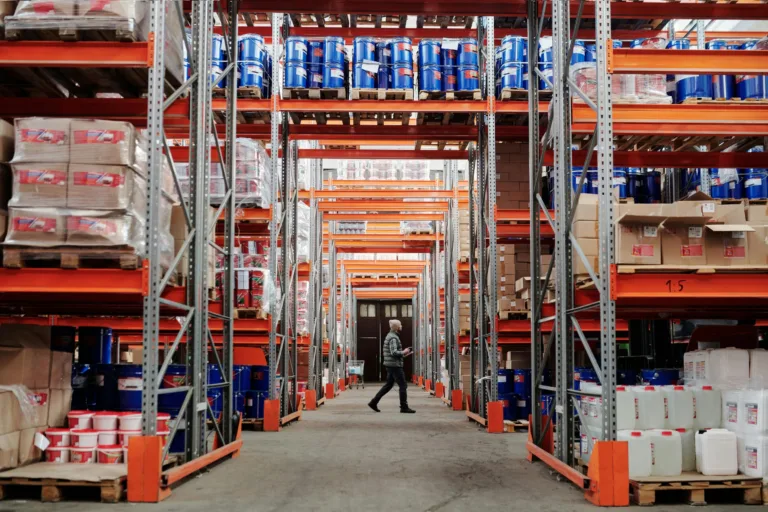In the business world, where efficiency and precision are crucial, warehouse management systems must keep pace with the latest technological advances. Therefore, by 2025, artificial intelligence (AI) is expected to play a central role in warehouse management. This article highlights not only the integration of AI, but also its impact on logistics processes. It also provides a detailed insight into the developments and challenges of the future.
Advances in AI-driven warehouse management and inventory control
The integration of IoT-based systems, automated solutions and AI algorithms improves real-time inventory management. As a result, these technologies lead to lower costs and higher productivity. In addition, AI-driven systems automate warehouse processes and ensure more accurate inventory management. This reduces bottlenecks and utilises warehouse capacity more efficiently.
Außerdem können Unternehmen dank Echtzeitdatenanalyse schnell auf Veränderungen in Lager und Lieferkette reagieren. Dies führt zu einer gesteigerten Kundenzufriedenheit. Folglich können Unternehmen besser auf kurzfristige Marktanforderungen reagieren und ihre Betriebsabläufe agil gestalten.
New AI tools, systems and technologies for warehouse logistics

The innovation portfolio includes AI tools that have been specially developed for inventory management. They control the flow of goods efficiently and optimise storage space. AI systems that recognise the language of warehouse employees shorten the training period and increase efficiency.
The use of AI algorithms to analyse historical sales data improves the prediction of future demand. This enables better matching of supply and demand.
AI-controlled image recognition systems facilitate the visual inspection and identification of warehouse stock. They improve accuracy, minimise errors and increase efficiency.
Challenges and opportunities of digitalised warehouse management with AI
Despite the undeniable benefits of AI integration, companies face challenges such as the development of a comprehensive database, the seamless integration of AI systems into existing IT infrastructures, employee training, security issues and data protection. To overcome these obstacles, decision-makers need to invest in robust data foundations, embark on technology integration, train their employees and implement strict security and data protection guidelines.
Strategic recommendations for the successful use of AI in warehouse logistics

For companies planning to integrate AI solutions into their warehouse processes, it is advisable to proceed with a clear strategy and a step-by-step approach. In addition, a solid database is essential and choosing the right AI tools that are customised to the company's specific needs plays a crucial role in success. In addition, ongoing training of employees is of great importance to ensure that they are familiar with the new technologies and can use them effectively.
Conclusion
The future of warehouse management in 2025 sees a strong penetration of AI-based systems that enable more accurate, efficient and cost-effective warehouse management. While the challenges associated with the introduction of these technologies are challenging, they can be overcome with careful planning and implementation. Companies that are willing to invest in advanced technology and approach implementation strategically will lead the way in an increasingly competitive and technology-driven world.
For further information, please contact contact@circly.at or use our contact form https://www.circly.at/en/contact to book an appointment.
To learn more about this topic, see the sources listed below:
